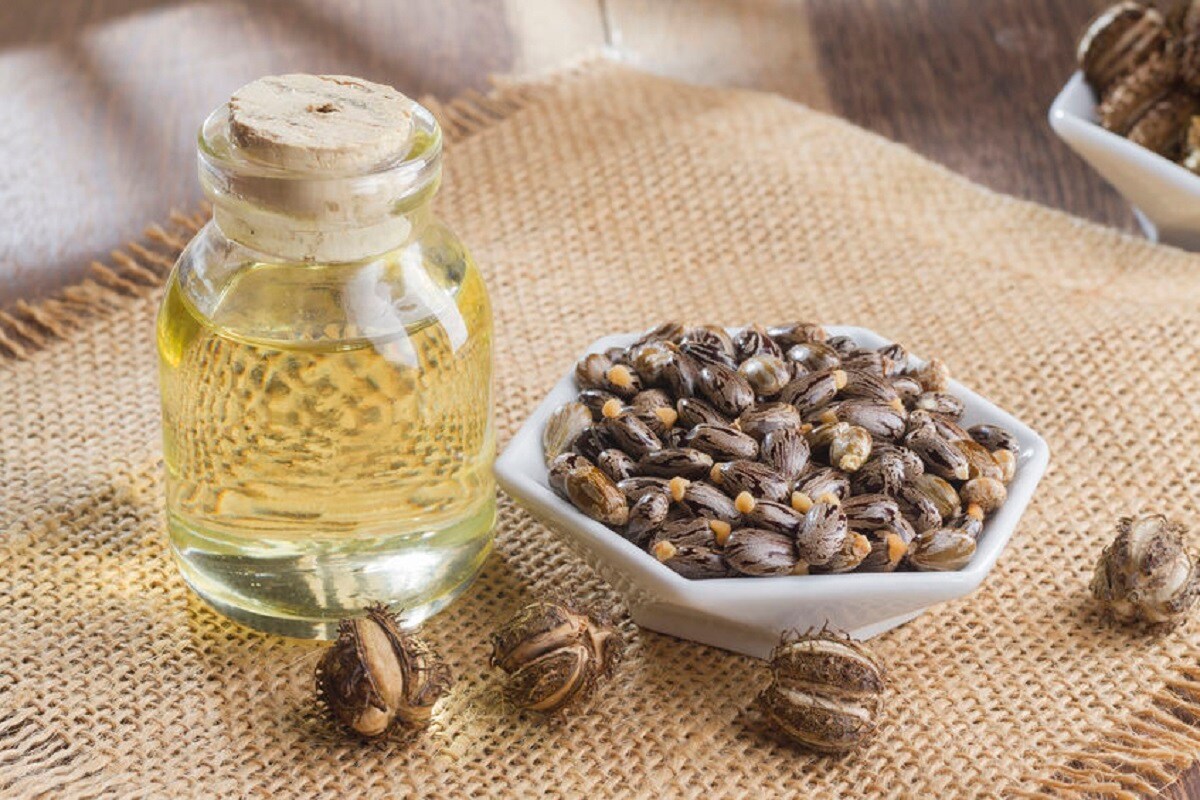Castor oil is a powerhouse ingredient with scientifically proven benefits for both skin and hair. It is rich in ricinoleic acid, a unique fatty acid with antimicrobial, anti-inflammatory, and deeply hydrating properties. Various studies have supported its use in skin care and hair care for hydration, anti-aging, wound healing, and promoting hair growth.
Skin Benefits of Castor Oil:
Deep Hydration & Skin Barrier Repair
Castor oil is rich in ricinoleic acid, a monounsaturated fatty acid that acts as a natural humectant, drawing moisture into the skin.A study in the International Journal of Molecular Sciences (2018) highlighted that humectants like castor oil help maintain skin hydration by reducing trans-epidermal water loss (TEWL).
Anti-Aging & Wrinkle Reduction
It boosts collagen and elastin production, which keeps the skin firm and reduces fine lines. A 2012 study published in Pharmacognosy Research found that castor oil is rich in antioxidants that fight free radicals, which cause premature aging.

Acne Control & Antibacterial Properties
The ricinoleic acid in castor oil has antimicrobial and anti-inflammatory effects. A study in the Journal of Applied Microbiology (2016) showed that ricinoleic acid inhibits the growth of Propionibacterium acnes, the bacteria responsible for acne.
Scar Healing & Stretch Marks Reduction
The ability of castor oil to increase collagen and elastin synthesis makes it useful for reducing scars and stretch marks over time. Castor oil promotes wound healing by enhancing tissue regeneration. A study in Wounds (2015) found that applying castor oil dressings improved healing in chronic wounds.
Soothes Inflammation & Skin Conditions
Research in Evidence-Based Complementary and Alternative Medicine (2019) suggested that castor oil has anti-inflammatory properties beneficial for eczema, psoriasis, and dermatitis.
Natural Makeup Remover & Skin Cleanser
Oil-based cleansing is scientifically supported for dissolving sebum, dirt, and waterproof makeup without disrupting the skin barrier. A 2021 study in Clinical, Cosmetic, and Investigational Dermatology recommended plant-based oils like castor oil for gentle cleansing.
Hair Benefits of Castor Oil:
Castor oil is among several oils that have been used traditionally by people of color, particularly those with Indian or African heritage, to treat hair and scalp conditions.
Boosts Hair Growth
Castor oil contains omega-9 fatty acids, which nourish the scalp and hair roots. A study in the Journal of Ethnopharmacology (2019) reported that ricinoleic acid increases circulation to hair follicles, potentially boosting hair growth.

Prevents Hair Loss & Strengthens Hair Strands
It forms a protective layer around hair strands, preventing breakage and split ends. A 2017 study in Toxicology Reports found that castor oil reduces oxidative stress on the scalp, which can cause hair thinning.
Fights Dandruff & Scalp Infections
Due to its antifungal and antibacterial properties, castor oil helps reduce dandruff caused by Malassezia, a common fungus linked to flaky scalp issues.
Adds Shine & Softness
A study published in Journal of Cosmetic Science (2018) found that oils rich in fatty acids, like castor oil, penetrate the hair shaft, improving shine and softness.
Strengthens Eyelashes & Eyebrows
A study in Dermatology Research and Practice (2021) concluded that castor oil improves lash and brow density by nourishing follicles with essential fatty acids and proteins.
How to Use Castor Oil:
For Skin:
- Mix with a carrier oil (like coconut or almond oil) to prevent heaviness.
- Apply as a night moisturizer or spot treatment for acne and scars.
For Hair:
- Massage into the scalp and leave overnight for hair growth.
- Mix with argan oil or jojoba oil for a lightweight hair serum.
For Eyelashes & Eyebrows:
- Use a clean mascara wand to apply before bed.
Disclaimer
The Content is not intended to be a substitute for professional medical advice, diagnosis, or treatment. Always seek the advice of your physician or other qualified health provider with any questions you may have regarding a medical condition.
Publisher: Source link











